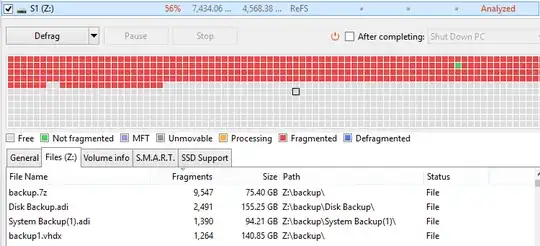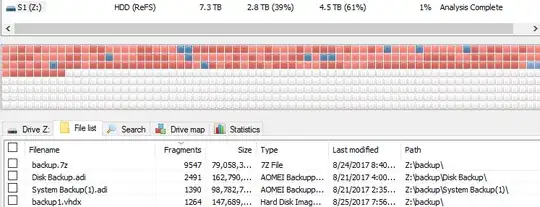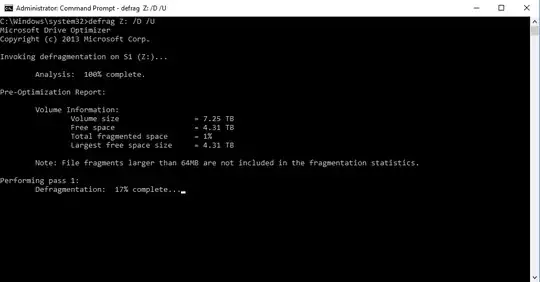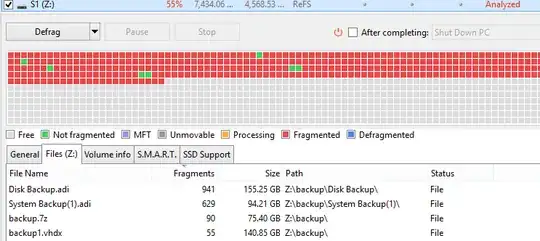Possibly related question:
https://serverfault.com/questions/790563/refs-is-fragmentation-ok-is-defragmentation-needed
Note that I am using Windows 10 Home, version 1607. The Storage Space has four disks with two-way mirroring which results in 2x redundancy. Integrity streams are enabled.
The Windows Defrag and Optimize tool indicates "100% space efficiency (OK)", and when run manually, only performs a "trimming" operation for couple of minutes.
Auslogics Disk Defrag reports that over half of the storage space is fragmented, with many files having several thousand fragments (up to 10,000).
Of all the other defragmentation tools I looked at, only Defraggler explicitly mentions ReFS support, but nothing about Storage Spaces. (https://www.piriform.com/defraggler/version-history) It says that the drive is of type "HDD". But the results are consistent with Defrag:
On a side note, this is surprising since these are files that I copied from another drive, not files that were appended to, resized, modified, or ever opened in write mode since copying to the drive.
It appears that the defrag tool included with Windows does not support ReFS: https://technet.microsoft.com/en-us/library/cc731650(v=ws.11).aspx
Given the fact that its analysis differs widely from the built-in tool, and results seems unusual, I am wondering they are actually reporting correctly and if it is indeed safe to execute a defrag.



